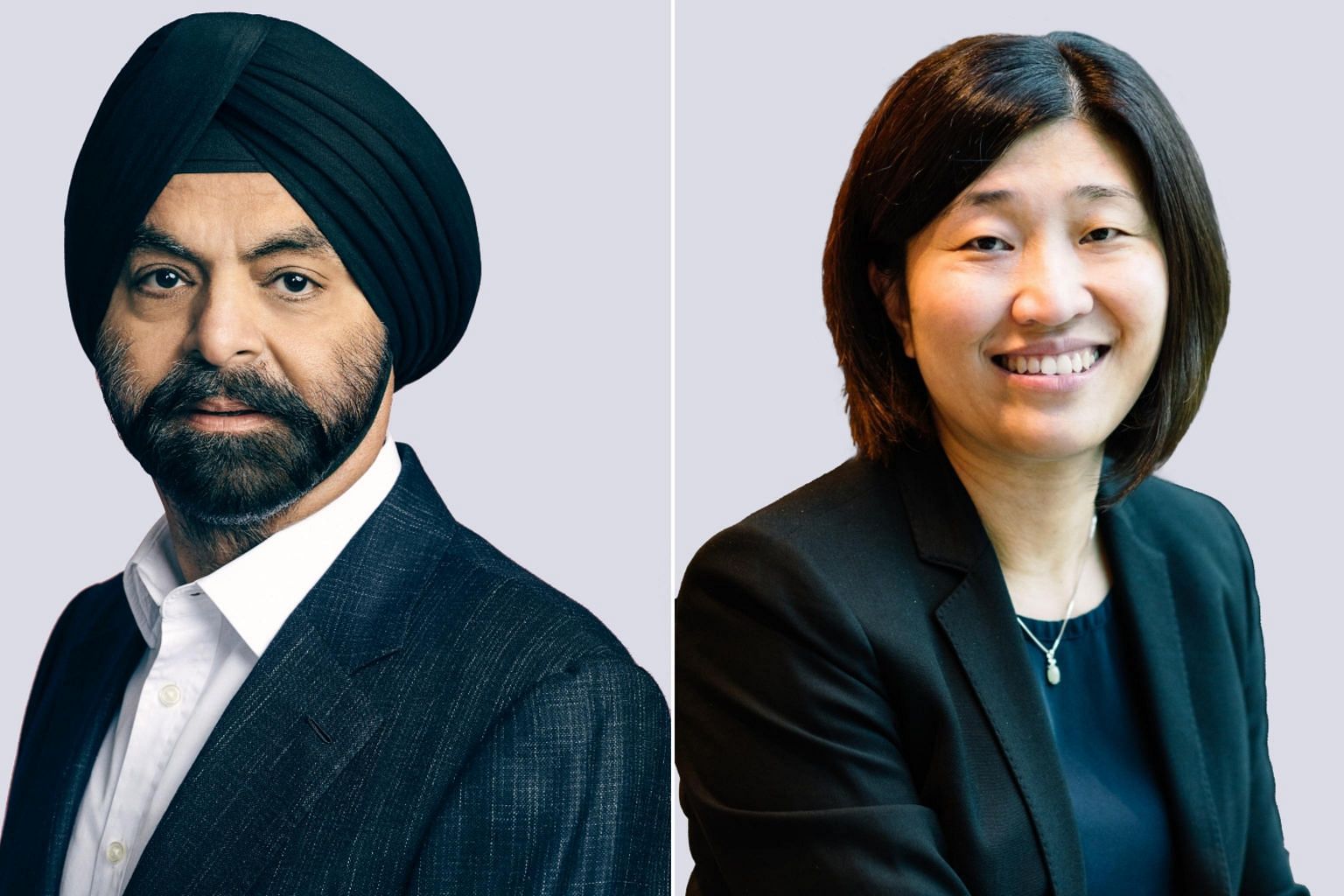- Joined
- Jul 25, 2008
- Messages
- 12,469
- Points
- 113
Goh Chok Tong and S Dhanabalan are the #1 and #2 seat-warmers for the famiLee

Ms Ho Ching will be appointed to Temasek Trust’s board of directors with effect from Oct 1, 2021, and take over as chairman from April 1, 2022.
ST PHOTO: KUA CHEE SIONG

Choo Yun Ting
Sep 30, 2021
SINGAPORE - Retiring Temasek Holdings chief executive Ho Ching will be taking over as chairman of Temasek Trust from April 1, 2022.
Ms Ho, 68, will be appointed to Temasek Trust's board of directors with effect from Friday (Oct 1), the same day she is retiring from the Singapore investment company.
From April 1, she succeeds Mr S Dhanabalan, who will remain on the board and be designated Chairman Emeritus.
In a separate statement on Thursday, Temasek also announced two new appointments to its board of directors.
Mastercard executive chairman Ajay Banga's appointment is effective Friday, while GGV Capital managing partner Jenny Lee will join the board on Jan 1, 2022.
Temasek said that the new appointments to its board continue a process of transition, following the recent retirement of director Goh Yew Lin and the retirements of Ms Ho and Mr Robert Ng on Oct 1.
 The appointments of Mr Ajay Banga (left) and Ms Jenny Lee will be effective from Oct 1, 2021 and Jan 1, 2022 respectively. PHOTOS: TEMASEK
The appointments of Mr Ajay Banga (left) and Ms Jenny Lee will be effective from Oct 1, 2021 and Jan 1, 2022 respectively. PHOTOS: TEMASEK
Ms Ho is being succeeded by Mr Dilhan Pillay, who will hold a dual role as CEO of both Temasek and its commercial arm Temasek International.
At the same time, three new directors will be appointed to the board of Temasek Trust, which was established in 2007 to provide governance and financial oversight of the company's philanthropic endowments that fund the work of designated beneficiaries.
Its beneficiaries include Temasek Foundation and Temasek Life Sciences Laboratory.
The three new directors - Mr Benny Lim, Mr Teo Ming Kian and Mr Tow Heng Tan - will join the board with effect from Jan 1, 2022.
Mr Dhanabalan, who has been chairman of Temasek Trust since September 2015, said: "Ho Ching has a deep and passionate commitment to so many community causes, and has been instrumental in Temasek's own stewardship journey over the past two decades.
"The board decided we would ask her to join us, and to continue that commitment by leading Temasek Trust next year."
Ms Ho said she was honoured to be invited to join the board of Temasek Trust, and said she sees great opportunity for it to evolve its role given the scale it has reached.
"I am very impressed by the remarkable progress that Temasek Trust has made since its founding over 10 years ago.
"Temasek Trust has enabled a steady and sustainable support for Temasek Foundation and other initiatives to deliver vitally important programmes in the communities in Singapore and around Asia," she said.
She paid tribute to Mr Dhanabalan's work as chairman, noting how he helped to underline the importance of Temasek Trust's governance role.
"By getting that right, he has solidified Temasek Trust as a trusted partner and platform to deepen the interest for thoughtful and impactful philanthropy on a sustainable basis."
Retiring Temasek CEO Ho Ching to join Temasek Trust board, take over as chairman from April 1, 2022

Ms Ho Ching will be appointed to Temasek Trust’s board of directors with effect from Oct 1, 2021, and take over as chairman from April 1, 2022.
ST PHOTO: KUA CHEE SIONG

Choo Yun Ting
Sep 30, 2021
SINGAPORE - Retiring Temasek Holdings chief executive Ho Ching will be taking over as chairman of Temasek Trust from April 1, 2022.
Ms Ho, 68, will be appointed to Temasek Trust's board of directors with effect from Friday (Oct 1), the same day she is retiring from the Singapore investment company.
From April 1, she succeeds Mr S Dhanabalan, who will remain on the board and be designated Chairman Emeritus.
In a separate statement on Thursday, Temasek also announced two new appointments to its board of directors.
Mastercard executive chairman Ajay Banga's appointment is effective Friday, while GGV Capital managing partner Jenny Lee will join the board on Jan 1, 2022.
Temasek said that the new appointments to its board continue a process of transition, following the recent retirement of director Goh Yew Lin and the retirements of Ms Ho and Mr Robert Ng on Oct 1.

Ms Ho is being succeeded by Mr Dilhan Pillay, who will hold a dual role as CEO of both Temasek and its commercial arm Temasek International.
At the same time, three new directors will be appointed to the board of Temasek Trust, which was established in 2007 to provide governance and financial oversight of the company's philanthropic endowments that fund the work of designated beneficiaries.
Its beneficiaries include Temasek Foundation and Temasek Life Sciences Laboratory.
The three new directors - Mr Benny Lim, Mr Teo Ming Kian and Mr Tow Heng Tan - will join the board with effect from Jan 1, 2022.
Mr Dhanabalan, who has been chairman of Temasek Trust since September 2015, said: "Ho Ching has a deep and passionate commitment to so many community causes, and has been instrumental in Temasek's own stewardship journey over the past two decades.
"The board decided we would ask her to join us, and to continue that commitment by leading Temasek Trust next year."
Ms Ho said she was honoured to be invited to join the board of Temasek Trust, and said she sees great opportunity for it to evolve its role given the scale it has reached.
"I am very impressed by the remarkable progress that Temasek Trust has made since its founding over 10 years ago.
"Temasek Trust has enabled a steady and sustainable support for Temasek Foundation and other initiatives to deliver vitally important programmes in the communities in Singapore and around Asia," she said.
She paid tribute to Mr Dhanabalan's work as chairman, noting how he helped to underline the importance of Temasek Trust's governance role.
"By getting that right, he has solidified Temasek Trust as a trusted partner and platform to deepen the interest for thoughtful and impactful philanthropy on a sustainable basis."
Last edited:

